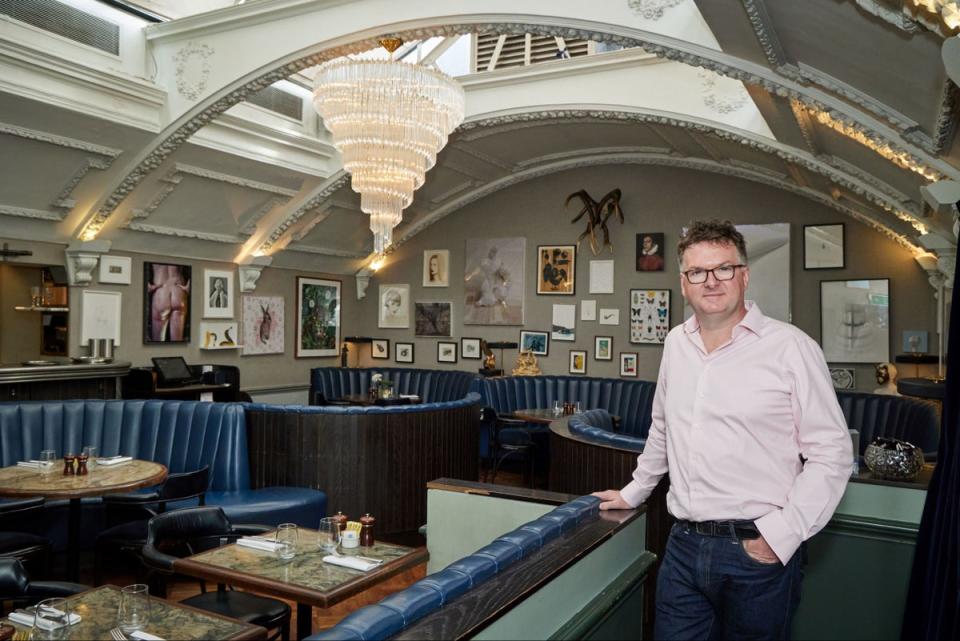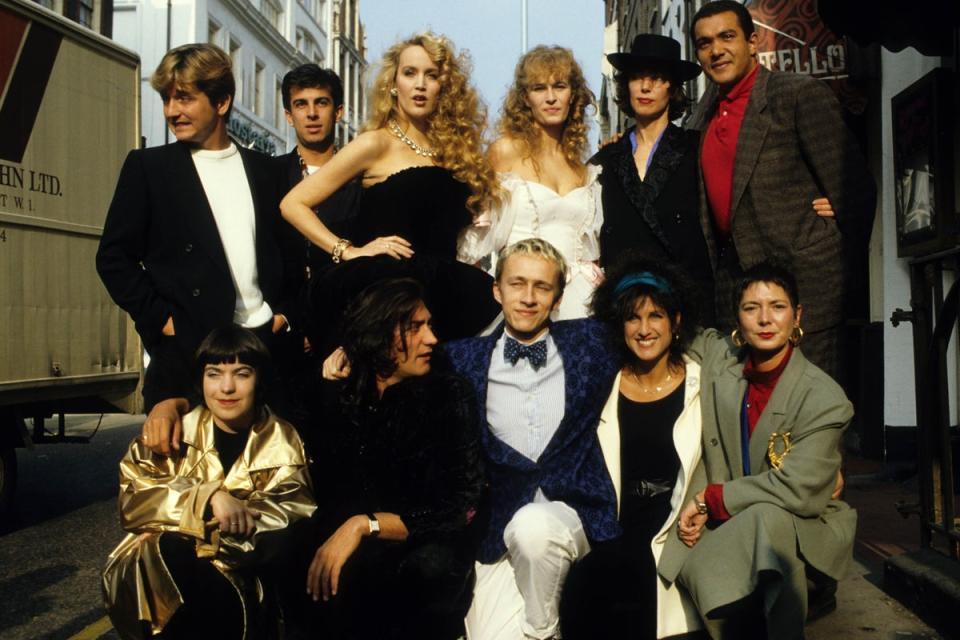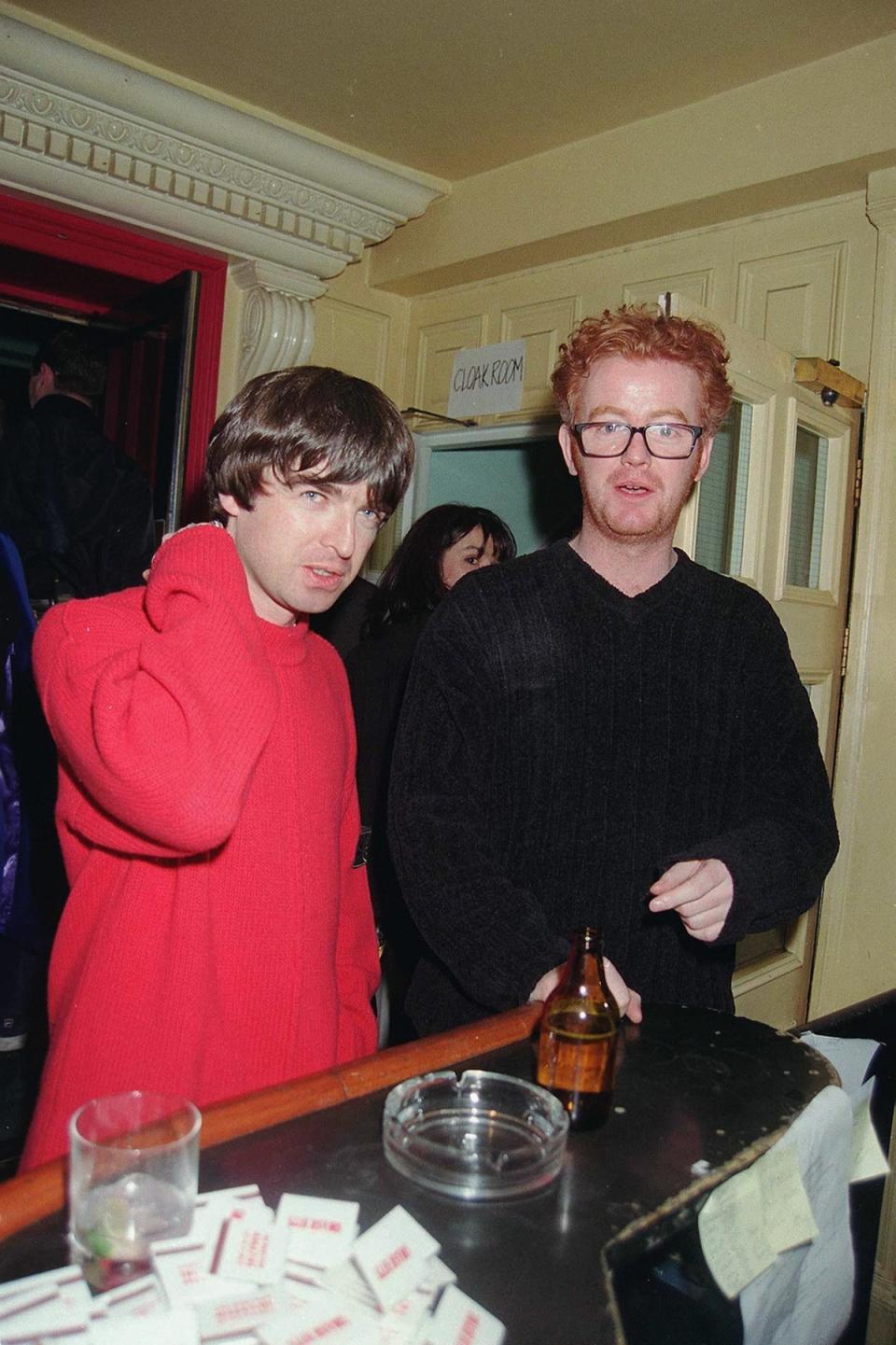The Groucho: Can new owners give the club its groove back?

Given Soho’s Groucho Club is famous for banning Damien Hirst, refusing Al Pacino entry and for the frequency with which Britpop stars were found slumbering under the snooker table, it’s perhaps inevitable that its new owner can’t help but drop a name or two as he discusses the acquisition. “I had the sweetest text from Nigella this morning, who sort of went ‘what!’ when she heard the news,” says Ewan Venters, eyes glinting. “And then she digested it and went, ‘oh my God! It’s so clever, it’s so right’.”
Venters is perhaps best known for his time at the top of Fortnum & Mason, but he joined gallerists Hauser & Wirth as chief executive at the beginning of last year and now oversees the company’s hospitality arm Artfarm, which is behind the Groucho purchase. Reports put the deal at being worth £40 million. True? Venters is a coy and, you gather, experienced interviewee and pulls his mouth into a straight line of a smile. “Well, we’ve not announced any numbers so, I mean, people are clearly reasonably well-informed.” He gives a dry laugh.
If £40 million for a private members’ club on Dean Street seems high, it speaks to its one-time reputation as the place to be, and of its connections: of Kate Moss and Sienna Miller and Rachel Weisz, of Leonardo DiCaprio and Tom Hardy and Harry Styles. But the place has always entertained the louche and the lush. Early members included drinking pals Francis Bacon and journalist Jeffrey Bernard — who is said to have once hurled a brandy bloomer at Robbie Coltrane — who provided the booze, while Melvyn Bragg and Stephen Fry offered the brains. Fry also scribbled up the club rules, which include a strict ban on mobiles and string vests (“there is enough distress in the world already”).
Are all the stories and A-list attachments publicity on a plate or a poisoned chalice? Venters smiles more brightly this time. “I sat with Judi Dench last Friday in Cornwall for lunch and Jude said, ‘I want to be a member.’ She’s 87. I think it’s great! It’s exciting! She wants to be part of modern day history.”

Dame Judi is a glittering name, but is the future of the Groucho to be found in octogenarians? “She’s the coolest 87-year-old on the planet!” he erupts playfully. “You might have seen a headline about the Groucho and young blood and the reality is… you need a mix. That’s what makes interesting spaces, the yin and the yang, different backgrounds. You want the most eclectic mix possible.”
What will this mix look like? Venters outlines a broad milieu. “The Groucho always appealed to me as a member because it was this great meeting place of diversity, of different minds, and different brains.”
In the early days, this meant little more than hacks from different papers and publishers from different houses. Not now. “I think it’s about having a moment of reflection to consider: who do we all want to be around when we’re in the Groucho? And if that means that you’re having a drink next to a theatre set designer, an artist or someone who works for Apple designing the latest watch, that feels like a pretty good mix. That feels to me like a really interesting, diverse mix of people who might want to be there.”
This won’t mean a cull of the newly undesirable, he insists. “Good heavens no! Nothing would ever be as aggressive as that.” But will the 5,000-long membership list skip upwards? “I don’t particularly see that number growing that much. I think more the mix will change. But hypothetically speaking, I could have another thousand members all living overseas who might only come once or twice a year. Doesn’t matter. But if I have another thousand in London... bit of a problem.”

Artfarm is the fourth owner of the club since its 1985 opening. While one hallmark of Soho is a kind of Eeyore-ish pining for the past — it’s heyday has forever been about 20 years ago — what does Venters make of the suggestions that the Groucho is past its absinthe-soaked heyday? He looks down, staring at his watch as he winds it. “I think it’s relative positioning. If you feel it has lost its way, that’s personal to you. I don’t think it’s really for me to say that it’s better or worse. I think it’s all where you are on your journey in life.”
How diplomatic, I say, catching his eye. There is the slightest of concessions. “I think that when we identified that there was an opportunity to potentially acquire the Groucho, we saw a great creative community in a village called Soho. And we thought well, actually this organisation, deserves a bit of love and care.”
What form this love and care will take will reveal itself in due course, but gently-gently seems to be the measure of things, rather than stripping the joint down and starting over.
“We will sympathetically look to renew and refresh in certain places,” Venters says carefully, “and talk to the members and talk to the management about how we can do things slightly differently. I love the expression ‘evolution, not revolution.’”
You need a mix. That’s what makes interesting spaces, the yin and the yang, different backgrounds. You want the most eclectic mix possible
There is one direction it seems certain the Groucho is heading in: overseas. Venters mentions repeatedly that Artfarm is working out where to take the club.
“When one looks at the membership list, they’re global citizens. They travel. Therefore, I think that there’s an appetite from a number of members who want to see us appear in a few locations.”
Would there be another in the UK? He rules London out but not the rest of the country. “Quite rightly that’s been quite a diverse push away from London. Why couldn’t the Groucho potentially appear in…” He pauses. Scarborough? He raises an eyebrow. “Well, maybe not Scarborough, but let’s start out in other major cities.”
Later, Venters talks about singing around the piano with James Nesbitt, or his early days there with hard-partying chef Mark Hix, some 15 years back. “When you come off that street, you’re not just going into another bar,” he says fondly. “It’s a different world you’re entering into.”
We talk about some of the wilder stories over the year. Is that the club he remembers? “Well, look, I don’t know that you can… I don’t think...” For a rare moment, he is caught fumbling for words. “I don’t think everybody necessarily has the full Groucho experience that you might be alluding to...”
Perhaps not. But it’s the one thing, perhaps the only thing Venters says, that doesn’t quite convince. And for the Groucho, that’s a very good thing indeed.

 Yahoo Sport
Yahoo Sport 





































